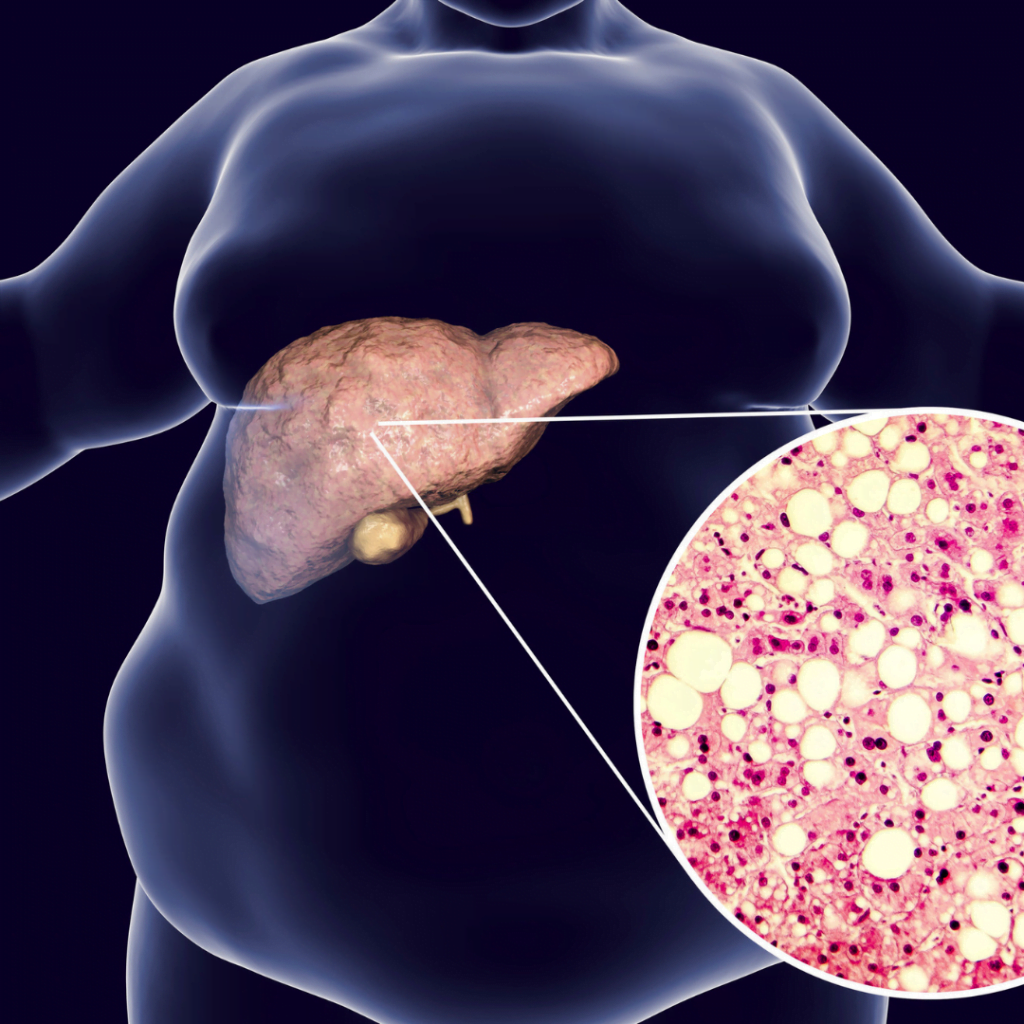Liver Congestion is when the liver becomes congested with toxins and other harmful substances. It can occur due to improper diet, exposure to environmental toxins, excessive use of alcohol or drugs, stress, or other sources. This can cause liver injury. It can lead to various symptoms, such as fatigue, sleep problems, abdominal pain, nausea, loss of appetite, and jaundice. Left untreated, it can cause severe damage to the liver and even organ failure.
Chronic passive congestion of the liver leads to impaired blood flow from the liver to the inferior vena cava, which causes stasis of blood in terminal hepatic venules leading to liver dysfunction. The accumulation of heavy metals and toxic chemicals can also lead to congestive hepatopathy.
This condition has been especially prevalent in recent years due to people’s increased exposure to environmental toxins through everyday products and personal care items. The most important thing when dealing with liver congestion is getting an accurate diagnosis from a healthcare professional so that a personalized treatment plan can be created for each patient based on their particular needs and condition.
Also See: Sodium Butyrate: The Ultimate Way To Improve Your Gut Health and N-Acetyl Cysteine (NAC): Research-Backed Benefits of this Miracle Supplement!
Fortunately, liver support and changes in lifestyle such as reducing salt intake, eating a healthy diet, exercising regularly, and avoiding alcohol can help treat liver congestion and supplement with herbal supplements like milk thistle, dandelion root, turmeric, and artichoke extract. I have personally used many of these types of herbs and supplements to support my liver over the years.
Let’s go over the symptoms!

Table of Contents
Abdominal Bloating and Discomfort
Abdominal bloating and discomfort can be one of the most common symptoms of liver disease. People with liver issues may feel a general discomfort in their upper abdomen, experience swelling or bloating in the abdomen, and have abdominal pain due to enlarged organs in the abdominal area.
To reduce abdominal bloating due to liver disease, it is important to make lifestyle changes such as reducing salt intake, eating a healthy diet, exercising regularly, and avoiding alcohol. It occurs when liver function becomes congested due to various causes, such as liver disease, liver fibrosis, viral hepatitis, constrictive pericarditis, and cardiac cirrhosis. Liver congestion can lead to serious health issues if left untreated, including weight gain, abdominal pain and discomfort, liver damage, and liver failure.
Loss of Appetite or Feeling Too Full After Meals
Liver damage can cause a variety of symptoms including loss of appetite. This is due to the liver’s role in digestion and nutrient absorption. It works to produce enzymes that help break down proteins and carbohydrates while also helping to absorb vitamins and other nutrients from food. When liver damage occurs, the organ may be unable to effectively complete these tasks which can lead to a loss of appetite as well as other digestive problems.
Yellowish Discoloration in the Skin (Jaundice)
Symptoms of liver congestion include jaundice, weight gain, abdominal pain and discomfort, liver damage, and liver failure. Jaundice is a yellowish discoloration of the skin or eyes caused by an accumulation of a bilirubin pigment in the bloodstream. It is often linked to liver problems, including hepatitis and cirrhosis.
Dark Urine
If your urine is dark, it may indicate an excess of a pigment called bilirubin in your blood. Certain liver diseases, such as hepatitis or cirrhosis, can cause this. It can also signify hemolytic anemia, a condition in which red blood cells are destroyed faster than they can be replaced. In addition, medications and certain foods, such as blackberries or rhubarb, can also cause dark urine.
Light-colored Stools
Light-colored stools can indicate an inadequate intake of bile salts to break down food in the intestine. A blockage can cause this in the bile ducts, liver problems, or a deficiency in the enzyme that helps digest fats. In some cases, light-colored stools may also indicate that you have swallowed too much air while eating or drinking. It may also be an indication of dairy intolerance.
Fatigue and Weakness
Fatigue and weakness resulting from liver damage can be caused by several medical conditions. For example, liver damage from diseases like hepatitis or cirrhosis can cause the body to produce too much ammonia, which is toxic to the body’s cells and can lead to tiredness. In addition, people with liver failure may experience fatigue due to anemia or abnormal levels of certain hormones in the body.
Nausea and Vomiting
Liver congestion can cause several symptoms, including nausea and vomiting. This is because the liver helps to process waste products from food digestion, and when it becomes congested, these waste products can build up in the body leading to nausea and vomiting. Additionally, liver congestion may also lead to a buildup of toxins in the bloodstream which can cause a person to feel weak or tired.
Itching of the Skin
A congested liver can lead to several complications, including itching of the skin. This is because when toxins build up in the body, they can cause an inflammatory response, which may lead to itching. These toxins can also irritate nerve endings, leading to a sensation of itchy skin.
Pain or Tenderness in the Abdomen
Liver congestion can lead to pain or tenderness in the abdomen. This is because when the liver becomes congested, it can cause swelling and inflammation of the organ leading to discomfort. Additionally, when toxins build up due to the congestion, these can irritate nerve endings, leading to burning sensations or even sharp pains around the area. Therefore, treatment for liver congestion should be aimed at reducing swelling and eliminating toxins from the body.
Swelling in the Legs, Ankles, and Feet
Liver congestion can lead to swelling in the legs, ankles, and feet. This happens when fluid builds up in tissues due to the liver’s inability to filter toxins from the body adequately. As these toxins accumulate, they can cause inflammation and irritation of nearby blood vessels, leading to swelling in areas such as the legs, ankles, and feet. Treatment for this should include lifestyle changes such as reducing salt intake, eating a healthy diet, and exercising regularly alongside anti-inflammatory foods and medications.
Abnormal Bleeding or Bruising
Liver congestion can lead to abnormal bleeding or bruising. This is because when the liver is congested, it can impair the body’s ability to clot blood properly. As a result, this can cause blood to seep out of vessels resulting in these conditions easily. Treatment for this should focus on reducing inflammation and swelling of the liver while also supplementing with vitamin K to help the body produce more effective clotting factors.
Mental Confusion
Liver congestion can negatively affect mental clarity due to its ability to impair the liver’s detoxification processes. When the liver is congested, it cannot effectively process toxins and other harmful substances that can then enter the bloodstream and travel to other parts of the body.
This can have a negative effect on mental clarity as these toxins interfere with normal brain function. To improve mental clarity, reduce inflammation and swelling in the liver by making lifestyle changes such as reducing salt intake, eating a healthy diet, exercising regularly, and avoiding alcohol. Additionally, herbal supplements like milk thistle, dandelion root, turmeric, and artichoke extract can help promote improved liver health for better overall mental clarity.
Non-Alcoholic Fatty Liver Disease
Non-alcoholic fatty liver disease (NAFLD) is a condition in which fat builds up in the liver and causes inflammation. It commonly affects people who are obese, have type 2 diabetes, or have high cholesterol. Symptoms of NAFLD include fatigue, abdominal discomfort, weight loss, and an enlarged liver. In severe cases of NAFLD, it can lead to cirrhosis or liver failure.

Treatment for this condition includes lifestyle changes such as eating a balanced diet, engaging in regular physical activity, and reducing alcohol consumption. Supplements like milk thistle, dandelion root, Tudca, turmeric, NAC, sodium butyrate, and artichoke extract can also help improve liver health and reduce symptoms associated with NAFLD.
How to Get a Diagnosis
Magnetic resonance elastography (MRE) has become increasingly popular for diagnosing liver congestion as it offers more objective information on liver stiffness and provides clinical outcomes that are more accurate than traditional methods such as microscopic examination. Before you start any supplements or protocols, it is imperative that you get a diagnosis from your medical professional.
Wrap Up!
Fortunately, natural remedies are available that may help reduce the symptoms of liver congestion by improving liver function and restoring balance in the body. These include milk thistle extract, coconut oil, nutmeg essential oil blend, dandelion root tea, and coffee enemas.
Chinese medicine has also been used in conjunction with modern treatments for treating congestive hepatopathy, with promising results seen in prospective studies conducted over the past two decades. Personally, I have had great success with several of these supplements.
Furthermore, many natural remedies have been studied extensively, so not only are they considered safe, they may offer relief from symptoms by helping to restore hormone balance or by providing support for the liver through detoxification.
Additionally, lifestyle changes such as reducing alcohol consumption and avoiding toxic foods can also be beneficial for better health outcomes related to congestive hepatopathy.
Pin it for later!

These statements have not been evaluated by the Food and Drug Administration. Any product(s) on this website is not intended to diagnose, treat, cure, or prevent any disease.
Always consult a licensed health care professional before starting any supplement or nutraceutical. Especially if you are pregnant or have any pre-existing medical conditions. Individual results may vary. These are from my own experience and the experience of others and only our opinions.




